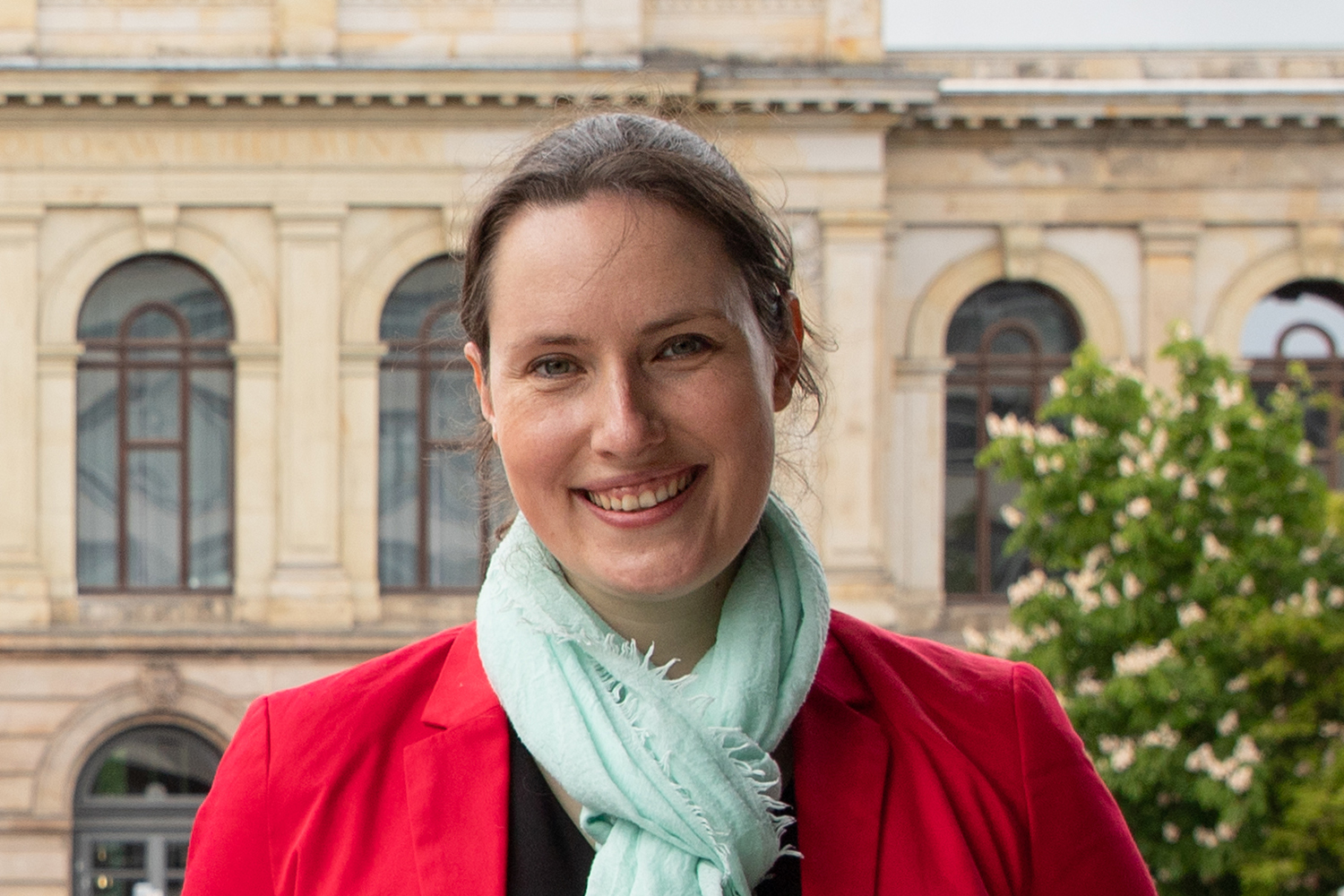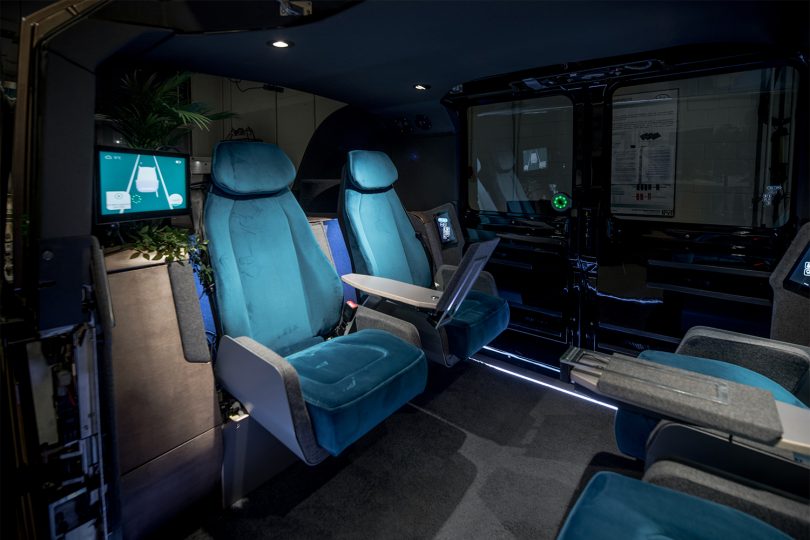At the interface of law, technology, economy and society Anne Paschke is Professor of Public Law, in particular Technology Law
Anne Paschke is University Professor of Public Law and Technology Law at Technische Universität Braunschweig since 1 October 2021. There, she is also Director of the Institute of Law and Head of the Mobility Law Research Unit. In her research, she has specialised in legal topics in digitalisation, in the areas of data use and data protection, e-commerce, e-government and e-health. Since 2019, she is also a policy officer for digital policy at the Federal Chancellery.

Anne Paschke, Professor of Public Law, in particular Technology Law. Photo credit: Max Fuhrmann/TU Braunschweig
Professor Paschke, have you arrived well at TU Braunschweig?
I have been very warmly welcomed by the university management and the faculty and have also experienced a lot of helpfulness and appreciation in the run-up to my change. That makes me very happy. At the same time, university bureaucracy doesn’t stop at professors: I first had to apply for an online ID in writing. That made me smile! If anyone happens to find an onboarding manual for professors, I’m still looking for it.
Why did you choose TU Braunschweig?
For two reasons: Firstly, TU Braunschweig offers an excellent environment for me as an interdisciplinary researcher. Very good research comes together here across faculties. Especially at the interface of law, technology, economics and society and with a view to the challenges of the digital transformation, this is crucial and a rare combination. Secondly, heading the Institute of Law gives me the opportunity to implement my ideas and concepts for innovative teaching formats. In this way, I would like to develop the Institute into one of the most modern in Europe in terms of interdisciplinary teaching in law in the coming years.
What exactly do you deal with in your research?
Let me give you an example: We are currently discussing a general speed limit in Germany again. However, such a regulation does not in fact prevent me from driving – against the rules – at 180 km/h on the motorway. Meanwhile, autonomous vehicles could be set from the outset by the manufacturer or the registration authority to drive at a maximum of 130 km/h on German roads and I, as the driver, can no longer decide on the speed myself. Such concepts of automated law enforcement are a possible consequence of the digital transformation.
The rapid development of technology means that business and administrative processes have to be rethought and redesigned. This is increasingly important for the state, takes place for efficiency reasons in the economy and thus also affects civil society. My research is dedicated to the legal issues of digitalisation, specifically from the perspective of constitutional and administrative law, but also going beyond: Who decides? Who is responsible? How can legitimate interests be adequately taken into account and discrimination prevented? As a result, the aim is to help shape a regulatory framework for the digital world that serves people sustainably and in the public interest.
What does Technology Law cover and where does it play a role?
Technology Law is a collective term for all legal issues associated with the use of traditional technology or new technologies. This raises many questions relevant to the economy, but also to our everyday lives. For example: Who is liable for damage caused by the use of technical devices? How can technical environments be designed in such a way that the interests of all concerned are protected in the best possible way? The spectrum ranges from individual technical devices such as a delivery drone to automated manufacturing processes in industry to the design of digital traffic infrastructure in a smart city.
What made you decide to do research in this area?
I belong to the first generation that grew up with digital media and all the associated opportunities and risks as a matter of course and am therefore a digital native. So while my everyday life had long been shaped by smartphones, social networks and chat services, digitalisation was not a topic at school or in most of my studies. This meant: We digital natives did not think there about the systemic changes that we are all experiencing ourselves. Now, therefore, we are forced to “think ahead”, so to speak, and catch up. Since 2010, I have therefore been dealing with legal issues in this area. This is a unique opportunity for active shaping that fascinates me anew every day. The interdisciplinarity of research in the field is enriching for me, as something tangible often emerges at the end of a project. In addition, the different perspectives on a research subject show me new exciting connections. This forces me to rethink and question my own findings. Conversely, I myself bring in a perspective that technicians and computer scientists often don’t know.
You also head the Mobility Law Research Unit. What are the main issues there?
Depending on the type of mobility, the research unit addresses very different issues. We look at flying as well as everything that happens on the railways, at waterways as well as those made of asphalt. We also differentiate according to whether people or goods are transported, whether data is primarily generated and processes optimised. In current projects, we are primarily concerned with new forms of mobility, for example in the area of micromobility, i.e. with motorised micro and light vehicles. We also deal with the legal questions raised by automated driving functions and the corresponding mobility concepts and services.
What inspires you as a scientist?
I love discovering new things, classifying them and communicating the associated findings, especially to students and colleagues or to the public. After all, discussions like those about e-scooters or autonomous vehicles affect everyone. Above all, I am happy when I can convince people of my work who are initially sceptical about the digitalisation of certain processes. When the added value of my research becomes tangible for these people through their own experience, for example in their city or at work, then that makes me happy.
An outlook on the future: What are your plans for your research or in teaching?
I would like to establish a research centre that is unique in Germany, that shapes technology in a legally compliant but also in an innovative way and that actively shapes digitalisation in Germany. I am convinced that TU Braunschweig, as a place of interdisciplinary research in the middle of Germany, has every chance here to continue to attract and train talent in the future in order to continue to be a strong brand of innovative and practice-oriented research in the field of technology design.

